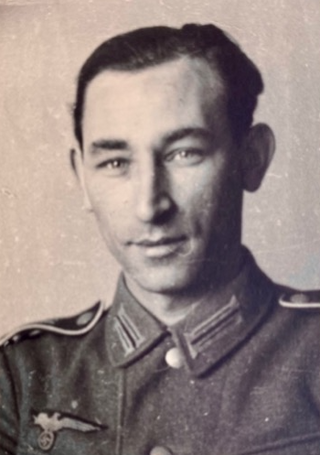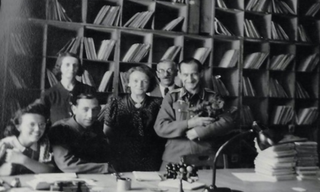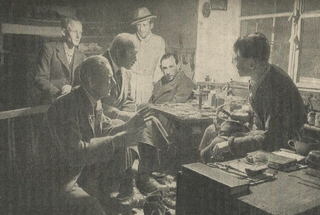Regierungsrat Oberamtsrat Anton Walder

Personalia
Born:
Died:
Profession:
Memberships
Curriculum Vitae
Anton Walder was born in Albeins in South Tyrol as the legitimate son of the railroad official of the same name and later parish priest of Hall in Tyrol, Anton Walder and Maria, née Krismer. After elementary school in Albeins, he attended the lower school of the Vinzentinum boarding school in Brixen and that in Schwaz. In 1928, he transferred to the Bundesoberrealschule Adolf-Pichler-Platz in Innsbruck and from 1934 was involved in the "Christlich-deutschen Turnerverein" [today: Sportunion]. He graduated in 1935 and began working as an insurance clerk. In 1937, he switched to the postal service.
On March 12, 1938, the devout Catholic and patriotic Austrian witnessed the demise of free and independent Austria with the invasion of the German Wehrmacht. Immediately after the occupation of Austria, the opponent of National Socialism is one of the founders of the Resistance Group Post in Tyrol, but is dismissed in the same year due to his opposition to National Socialism and works as a sales representative. In 1939, Anton Walder married Josefa Loidl and subsequently became the father of a son and a daughter.
On February 1, 1939, Anton Walder was called up to the Innsbruck military service detachment, placed in the reserve and conscripted into the railroad postal service. There he continued to be active in the Resistance Group Post. As he was missing three fingers on his left hand, he was not called up for military service. On September 1, 1942, he was finally assigned to the military registration office in Innsbruck. There he joined a resistance group and began forging documents such as war leave certificates. In addition, he systematically removed the index cards of soldiers who had already been called up so that they no longer appeared in the system.

Through meetings in Anton Haller's cobbler's workshop in Hall in Tyrol, he came into contact with men who wanted to join the resistance in an inconspicuous manner. Of particular importance was the procurement of forged credentials for men being pursued by the Gestapo. His cooperation with military authorities was so advanced that in many cases he succeeded in putting farmers and others who were fighting for Austria's freedom out of service (uk.). On April 9, 1945, he joined up with the resistance group around Karl Gruber and Ludwig Steiner.

Clear, sober thinking was very much compatible with a sincere Catholic sensibility.
After the liberation of Austria and the re-establishment of the Republic, he first worked for the French liberation authorities and was reassigned to the postal service in the fall of 1945. He also served on the advisory board of the Postal Telegraph Directorate as a representative of the Austrian resistance movement.
Places
Residence:
Citations
Dokumentationsarchiv des österreichischen Widerstands (DÖW)
Elisabeth Walder, Privat
